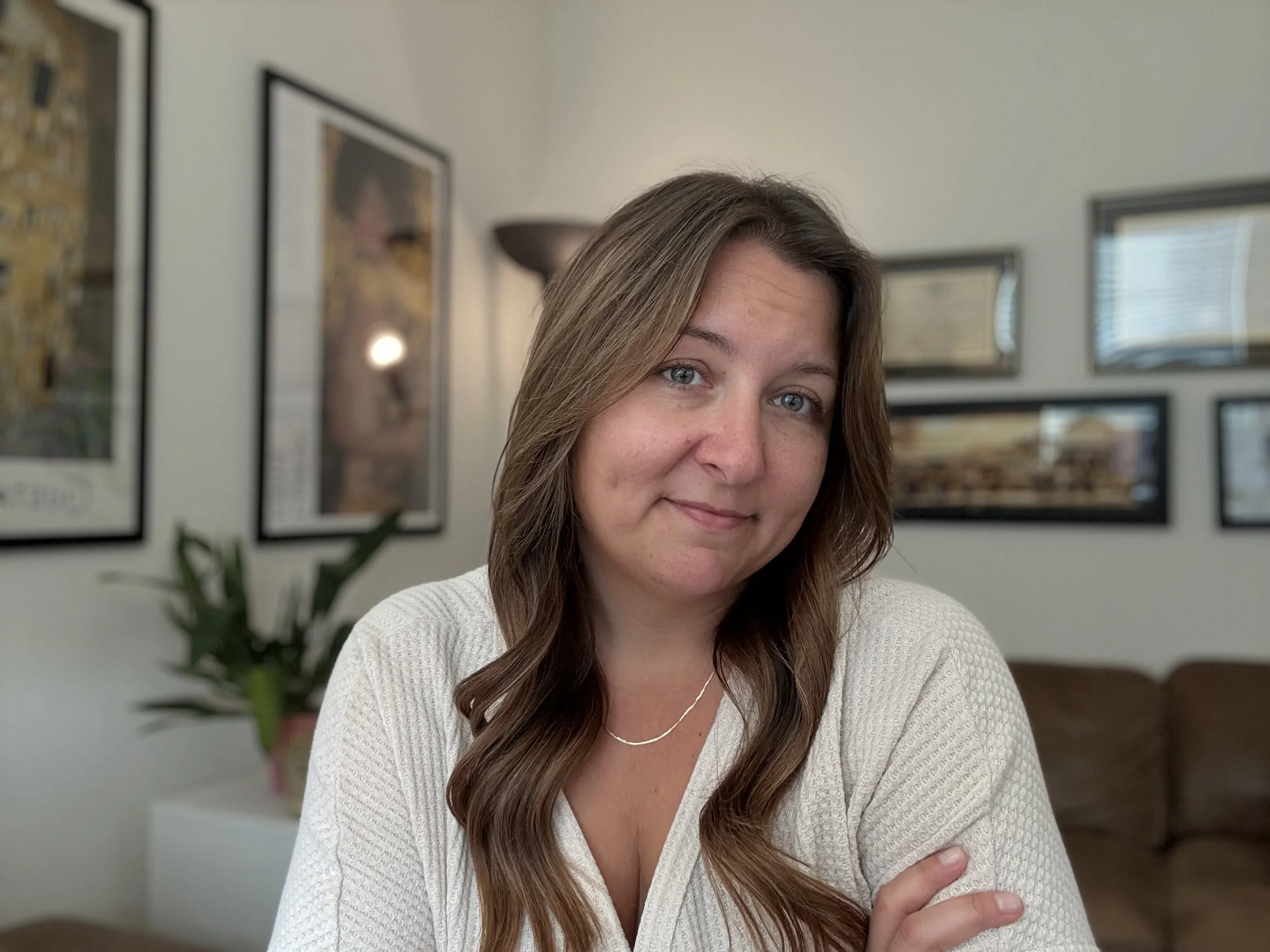Dr. Berney provides teletherapy services based out of Santa Rosa, and is available throughout the sate of California.
(707) 340-7443
dr.berney@abpsyd.com
California License # 33212
Dr. Amanda Berney, PsyD
My approach to therapy fits with my belief that patients have within themselves the knowledge and ability to bring about their own healing. My role is to be an attentive guide who supports self-exploration, teaches techniques for managing distress, and encourages overall wellness as clients pursue meaningful change.
Sessions are offered in a discrete and confidential online format. Your care does not need to be restricted by the limitations of insurance programs. Treatment is instead determined based on your individual needs.
Education
I am originally from Pittsburgh, Pennsylvania, where I studied Psychology and Counseling at Carlow University. It was at Carlow that I came to know and appreciate my self-worth and dedicated my career to empowering others to discover their own self-worth, and pursue mental health and wellness.
In this effort, I earned a Bachelor of Arts (B.A.) in Psychology with a concentration in Human Development. My background in human development informs my work with clients by helping me to understand the multiple internal and external influences that contribute to the development of a person’s identity.
Graduate studies provided a solid theoretical foundation and skill-set for working with clients in individual, family and group settings. I earned both a Master of Science (M.S.) in Professional Counseling, and a Doctor of Psychology (Psy.D.) in Counseling Psychology at Carlow University. My coursework and training experiences addressed issues of diversity, taught principles of social justice, and emphasized the importance of multicultural competence.
Experience
I was trained as a generalist practitioner to provide individual, group, couples and family therapy with clients of all ages, identities, and ethnic and cultural backgrounds. I have worked in multiple clinical settings, including: community mental health agencies, refugee and immigrant services, university counseling centers, and hospital systems. In these settings, I have treated a range of diagnoses that include adjustment, anxiety and depressive disorders, trauma-related disorders, problematic substance use, personality disorders, and family conflict. I have provided support for general life stressors and guidance for self-exploration leading to personal growth.
Approach to Therapy
My approach to therapy is relational, dynamic and integrative.
I practice relationally, focusing on building a relationship of trust, respect, non-judgment, and sincere caring with my clients.
My approach is dynamic in that I rely upon common developmental principles and the psychodynamic perspective—how the people and circumstances of our early years contribute to who and how we are today—to guide my understanding of what clients share of their lives.
My approach is integrative, in that I address client’s distressing symptoms and major concerns using interventions from various evidence-based practices. This means introducing skills and coping strategies for dealing with distressing symptoms, building insight about relational and behavioral patterns, and increasing motivation to pursue meaningful, sustainable change.
A relational, dynamic, integrative approach allows for a more inclusive and personalized approach to therapy. It encourages clients to take from therapy what works best for them and what they are likely to apply to their lives in the future.
Commitment to Equity, Diversity, Inclusion and Social Justice
A major focus of my education and career has been to embrace diversity, continue to develop multicultural competence, and learn to address issues of social justice. Discrimination and oppression are institutionalized within large systems such as higher education and health care. These social realities directly affect the psychological health of individuals of marginalized identities and people of color. Teaching, mentoring, and counseling individuals of diverse identities has enriched what I learned in the classroom. Foremost, my experience ensures that cultural considerations remain central to my work with clients. I am careful to consider the social structures that contribute to a client’s experiences. I strive to remain aware of my own biases, values, and limitations and to never make assumptions based on my personal worldview. I remain open to expanding my role to include that of advocate, case manager, and a reflective other who is willing to leverage my humanity for the benefit of my clients.

